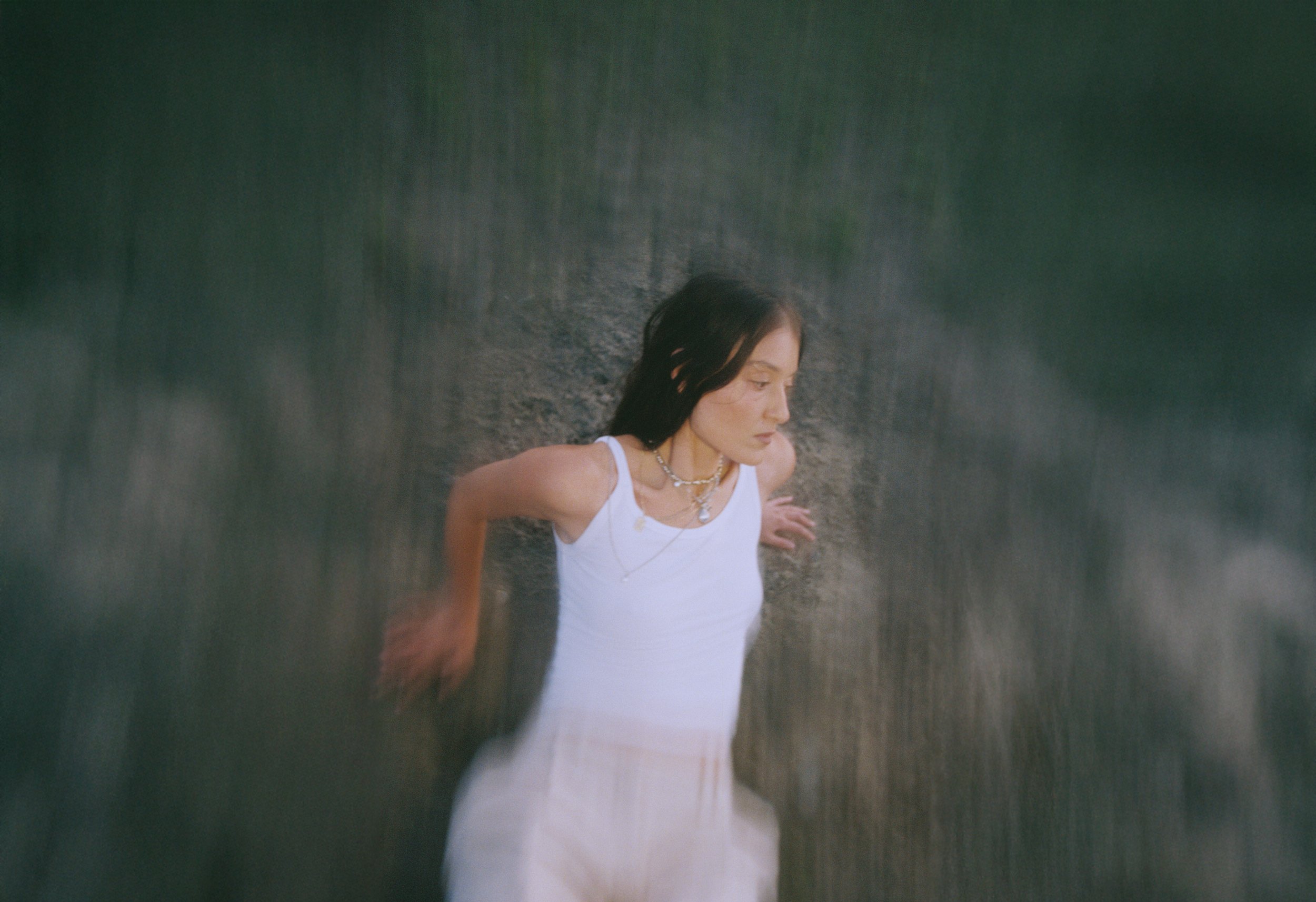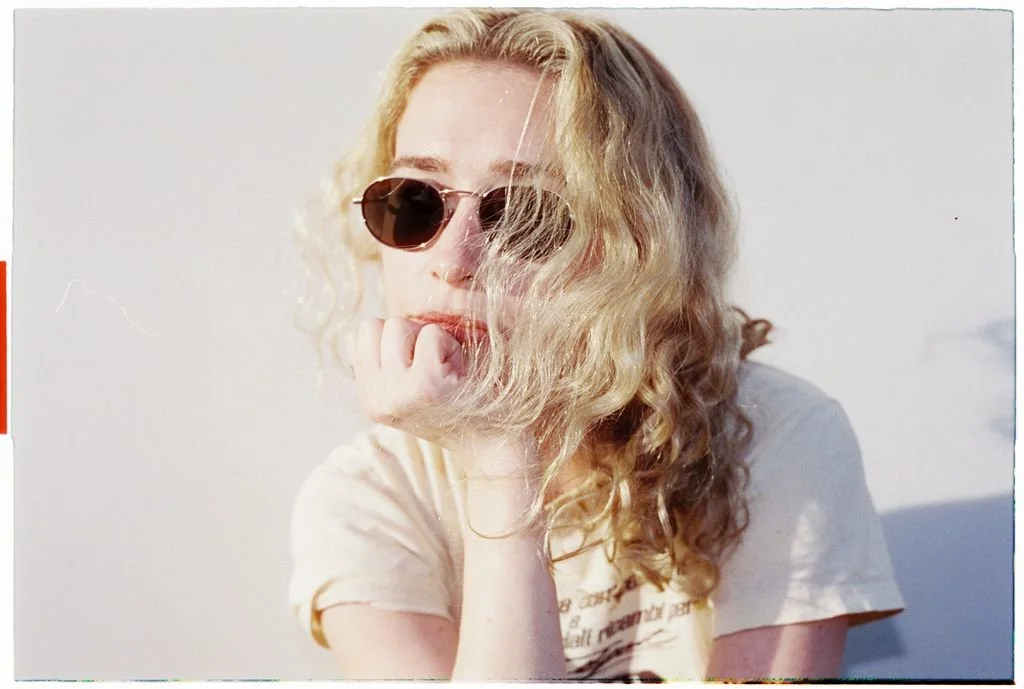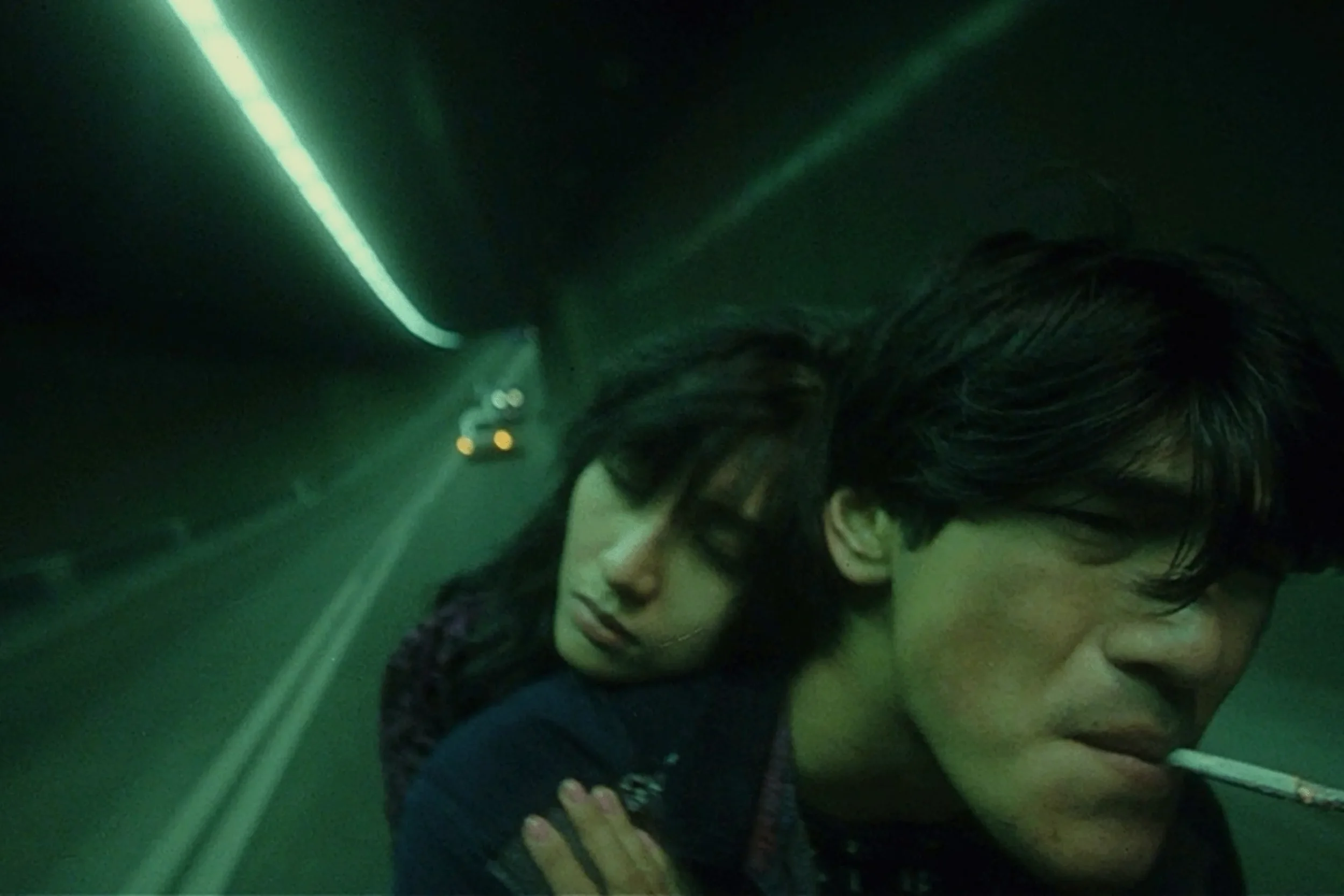Death to the internet / music for the end of the world, with DIIV
Cole dials into our chat on his phone, so instead of the usual bright, landscape oriented Zoom setting, he’s in portrait mode. He’s outside, and it’s late in LA so it’s dark and I can only see his face occasionally, lit up by an orangey glow every time he sucks on his cigarette.
I could pour my heart out in this intro about how DIIV are my favourite band – I’ve been a fan since Oshin – but it feels self indulgent and unnecessary because I think, much like their music, my conversation with Cole really speaks for itself – his humour, honesty and the generosity with which he answers – it’s all right here.
Join us, as Astrophe talks to Cole about DIIV’s latest album, 2024’s Frog In Boiling Water, their upcoming tour to Australia, and the impending death of the internet (hopefully.)
Sorry you can't see me.
That's okay.
Okay, cool.
It's been a while since you've been in Australia. Are you looking forward to coming back?
Yeah, of course. Last time we came it was, like, 2017 or something like that. And it was like one of those touring festivals, which is always really crazy, you know? And this time it's kind of more hodgepodge stuff, which will be cool to play some club shows.
I'm sure it is a really different vibe.
I always say, like, when you play a festival, you kind of have to go into their world, you know? Their experience is so much bigger than just, like, your show. They'll just kind of … walk by or be waiting to see something else, or whatever, and their experience is so overwhelming. Trying to find food and water and shade and all that stuff. So I feel like trying to keep that in mind at a festival is good. And then a club show, you kind of create a world and people step in. Which is also exciting, and I feel like it's more tailored to the show that we're doing right now.
Right, and that makes total sense for Frog In Boiling Water.
We tried to kind of make this multimedia thing. Like, you get on the ride and it doesn't stop for an hour and 10 minutes or whatever. Kind of like a ride at Disneyland or something like that. It's like a full multimedia thing … I guess I'm doing a bad job telling it, but it's an experience.
I feel like, it’s nice to go see a band who’s just like, a bunch of people on stage playing instruments, but this is kind of … we tried to do something a little bit different than that, for this record.
So it's like It’s A Small World, but by DIIV.
Yeah, it's just like It's A Small World, yeah.
I've heard you talk about the fact that you kind of came, all of the songs were like, created quite individually. And then you've poured them together into this concept album –
Kind of, yeah. We had been writing for a while, and, you know, had the songs for the album, but then did the lyrics last. It felt like that was kind of the thing that cohered it, and made it a concept record.
It definitely explores some pretty heavy themes, and, I mean, you've gone through a fair bit of stuff personally as well. Congratulations on baby number two.
Thank you.
But I mean, you became a father for the first time during the making of the most recent album. Do you feel like that experience is reflected in the album for you? How are you feeling towards it now, 12 months on?
Um. Well, I guess the first part of the question, the anxieties before becoming a parent, I think everybody feels that. Those kind of, like, big, existential questions get to the front of your mind, and so grappling with that, the idea of, like, bringing a child into a terrible and violent world.
And then coming to terms with that, it brought these bigger questions into focus a bit. And I feel like listening to it now or thinking about it now, I feel like it does kind of capture a feeling of what it feels like to be alive right now.
Yeah. Because even though it's immersive and it feels very profound and dark, it also feels like quite a safe space, you know, as things get more and more disruptive and devastating ... It's good music for the end of the world.
Yeah. You know, making it was like an outlet for these feelings. I feel like it would be hard to be a lawyer or something, or work in an office, and not really have an outlet for these kind of big feelings … anxieties or whatever they are. So it was nice to have an outlet for that, and then I think, for me, music is like a way of – or like all art is just a way of processing those feelings. And so I'm glad to hear that it is able to do that, for you.
Very successfully for me personally.
Can we talk a little bit more about the process of the album? I know that you guys have been super upfront and honest about the fact that it was a pretty difficult process. It was a long process, COVID happened in the middle of it. And it sounds like there's been a lot of conscious choice for you guys to keep coming back together as a band, even when it's been a bit shit.
I mean, a band is a job. It's kind of a crazy thing to do as your job. But it’s your job. It's also your creative outlet, and your band members are like your family. There's this family dynamic and all of those things are really heavy when it's all synthesised into one. So then, when you're starting to make creative decisions, it's difficult. These other anxieties come into the picture – like financial anxieties, or the family dynamics. Or, they're all in your mind when you're making a creative decision and it can become really difficult to, like, slog through all that stuff, and just, like, make music, you know?
And so I think we were all kind of going through that, and feeling, like, I think the financial anxieties made us want to make a record that we felt was, like, perfect, and the ... I guess, the lesson that we learned is, no record is perfect, you can't make a perfect record.
But we tried, and we gave it our best, but I think we learned a bit about ourselves and about the band through the process, and I guess the ends justify the means because we did make a record.
And from the perspective of the listener, we only know what you put out. I think sometimes, when you're striving for perfection, you forget that the finished product is perfect – because it's finished.
Yeah, Ben [Newman, drummer] always says that art is never finished. It's abandoned … or something like that.
I love the Soul Net website. I've been trying to express this recently – I miss what I’ve started calling the good internet. I feel like now we live in bad internet. This [soul-net.co] is what I miss. Weird, convoluted, pixelated websites. When you would have to go to a website to read someone’s blog or look at their work or their art or whatever, and now it all kind of comes to you, and it’s filtered through the algorithm.
That’s an interesting take, I like that, definitely. But [soul-net.co] was also kind of trying to be bad internet too, just paranoid slop. We based it on these real websites that were these real places where a person [was] losing their mind on the internet, and that was the subject of the song, so it felt like a fun thing to do. To feed some more slop into the internet and hopefully, it fucking dies, you know?
Yeah, death to the internet. Speaking of internet death, you’ve played with AI in the film clip for Soul Net. What's your relationship to AI?
The internet is a place that was designed to be a place where people talk to each other, but I feel like it’s increasingly becoming a place where you just consume. There's just this fucking slop, like, absolute garbage, which – I like it, because I hate the internet, right? And I feel like it's gonna quickly oversaturate it with fucking bullshit.
But, I feel like using it in the way we did – it was designed to be that kind of slop and like a snapshot of that particular moment. 'Cause AI has existed for a long time. There's artists using it earnestly, and there are artists trying to use it as a tool – maybe there's good applications for it. I don't know, I haven't experienced it, but I feel like making use of it in this kind of tongue in cheek way was fun. To engage with this very modern vision of the internet or something.
Yeah, I mean, it feels very aligned with the concept of the album to me. I think if you are listening to the music and you're watching the video and you're not seeing the correlation between that discomfort, those uncomfortable feelings, then you might be missing the point.
There’s so many deeply sinister and evil applications for AI and living in a surveillance state [Los Angeles], I thought it would be kind of funny to deep fake ourselves.
I used a voice model of us talking on our podcast. Anybody could do the exact same thing. It's just publicly available pictures of us and recordings of our voices and stuff. And so I thought that it was kind of interesting to do it to ourselves. There's definitely a lot to that whole conversation.
Probably more than we have time for.
So, the story of the Frog in Boiling Water is a metaphor for humanity, from The Story of B by Daniel Quinn. Was that specifically where you got the title from?
Yeah, I read that book in high school in my ethics class and that is where the title came from. I'm not a massive Daniel Quinn fan. [Andrew] Bailey in our band is. I feel like a lot of the ideas in the record were kind of reflected in some of his writing, which I thought was interesting – but the title, I feel like, really jumped out. It was an image that's been stuck in my head since high school. And so it was cool to, like, bring it back.
I think that there definitely is a collective experience of … things are getting worse and worse and worse and we're all a little bit immune to it because of the rate at which it has been happening even if now it feels like it's escalating.
People get jaded or used to this like … normalised hellscape. And I feel like it captured that idea, or that that image from the book captures that tendency of people really well.
All the grim stuff aside, how do you stay hopeful?
I mean, for me personally, it's being a parent. It’s the most unpredictable and grounding experience.
But I feel like, buried in the record are a lot of ideas of hope, and it doesn't even have to be, like, real hope. I think there's a lot of characters on the record that are really flawed, and have completely skewed visions of the world, but they're still hopeful that something will change, or that they can find salvation or something. And so I think it's an individual journey.
Um, but I think that there is a possibility for hope, for everyone. It's just kind of something you find on your own.
How do you go about writing the lyrics and stories and those characters? They are fictional people or are they inspired by something specific?
I guess it starts with just an idea or an image, or like a story we want to tell, and then we filter it through a character that could be us, or an aspect of us, or me.
It [FIBW] is the first time that I'd done that. I feel like our music had always been so personal and that that got kind of boring. So it was really fun, looking at the world. I didn't want to tell the whole thing from my perspective, 'cause that also feels kind of boring to me.
I think people have an expectation that art is about exposing yourself or your feelings, but I mean, allegory is potentially, you know, more effective than trauma porn.
Yeah.
All right, I'll just wrap it up with one final question and it's just my favourite question from the Proust questionnaire, which is: what is your most prized possession?
Oh, interesting. That's an interesting one because, um, our house just burned down.
Oh, it did. I'm so sorry.
So, I have a whole new landscape of possessions, you know. Thinking back on ones I had, or whatever. After the wildfires, there was this Red Cross donation centre, and you would go, and you would get water and hazmat suits to go to your house and look for shit, whatever. And they had these, like, buckets that were … big white buckets. And it was full of, you know, just random shit, cleaning supplies. It was just a bucket that had all the stuff you needed. But the bucket said Spring Break 2005 on the side, and I don't know why they printed – like, they're like these five gallon, industrial paint buckets. I don't know why they printed so many Spring Break 2005 buckets that the Red Cross had a surplus of them? But that bucket is still in my car; it’s my most prized possession.
That's amazing. That's really cool.
Yeah. It was like a moment of of levity in the fucking chaos – seeing that the bucket said Spring Break 2005.
Words by Isabelle Webster / You can catch DIIV along with Mount Kimbie DJs, BKTHERULA, Ripple Effect Band, Annie and the Caldwells, Nyege Nyege, Chapter Music + more at Melbourne Town Hall as part of Rising: Day Tripper Saturday June 7. Tickets are available here. Or, see them in Sydney, Friday June 17 at Carriageworks. Tickets here.
















